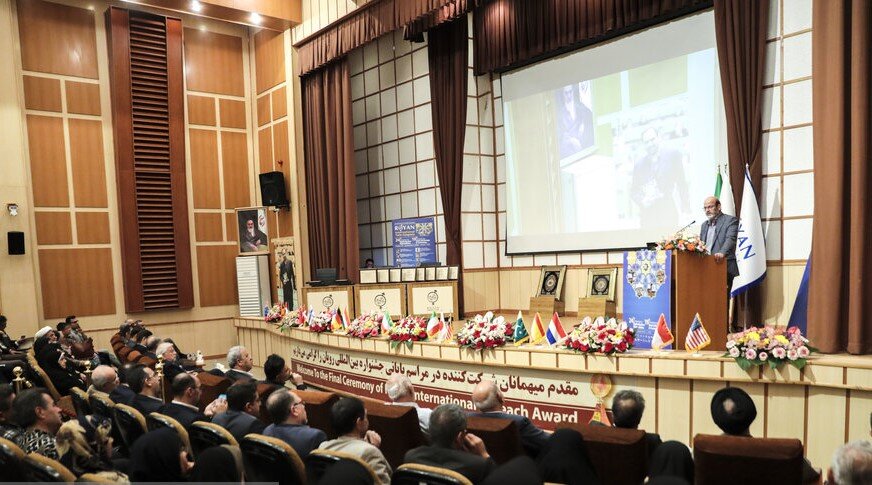Tehran hosting intl. congress on reproductive biomedicine

TEHRAN - The 24th International Congress on Reproductive Biomedicine opened in Tehran on Tuesday and will run until September 1.
Concurrently, the 19th Hybrid Congress on Stem Cell Biology and Technology will be held.
On the sidelines of the opening ceremony, winners of the 22nd Royan International Research Award were honored, IRNA reported.
Royan International Twin Congress (Reproductive Biomedicine and Stem Cells Biology & Technology) has demonstrated to be one of the most successful experiences of scientific gatherings in Iran and the region since 2000.
The events are organized by Royan Institute - a public non-governmental non-profitable organization established in 1991 as a research institute for infertility treatments.
In the world today, biomedicine has attracted the attention of many governments and investors due to its strategic position and great added value.
In Iran, the value-added of biomedical production after the field of information technology services has the highest value-added. Accordingly, those in charge of this field are trying to provide the ground for growth and development.
Iran is one of the countries that has made great efforts in the field of medicine to free itself from the struggle to supply medicine bypass sanctions and be able to respond to its local needs by relying on knowledge-based companies. One of these areas is the production of biopharmaceuticals, which has grown to 28 items.
Iran is also ranked 12th in the world and first in West Asia in terms of biotechnology, as 9.5 percent of the income of knowledge-based companies and more than 60 percent of their exports are related to biotechnology.
Stem cells are the “parent” cells from which all other blood cells develop. These are mainly red blood cells, platelets, and white blood cells. Bone marrow, the factory that produces stem cells, is the soft tissue inside bones like the breastbone or hip bone.
Stem cells are found in the brain, blood vessels, skeletal muscles, skin, liver, bone marrow, peripheral (circulating) blood, and the umbilical cord blood of newborn babies.
The Vice Presidency for Science and Technology has implemented four important projects in order to strengthen the country’s scientific citation in the field of stem cells.
One of the keys to the development is to provide strategic infrastructure in important fields. Smart knowledge-based platforms promote the scientific citation of the country and accelerate the formation of the scientific ecosystem.
The support of university technology development projects took place in a purposeful interaction between the Vice Presidency and the large universities.
Another measure taken in this area was supporting the development of the National Network of Animal Modeling and In-Vivo Research. This support has brought significant achievements including technologies for reproducing, keeping, and breeding of laboratory animals, the development of research and translation of knowledge and technology, and the development of technologies and laboratory services for in-vivo studies.
Another important step of the Council for Development of Stem Cell Sciences and Technologies last year was the establishment of a gene production center for the Royan Research Institute. During this process, two gene therapy projects became operational.
The launch of autophagy and regenerative medicine is also one of the plans supported by the Council last year. In this program, the management of the autophagy process in order to prevent tissue damage is recognized as a functional indicator of this plan.
Royan Institute was established in 1991 as an outpatient surgery center to provide medical services to infertile couples as well as research and training in reproductive sciences. In 2002, the research fields at Royan Institute extended into stem cell studies as well.
MG
Leave a Comment